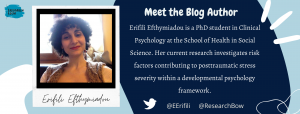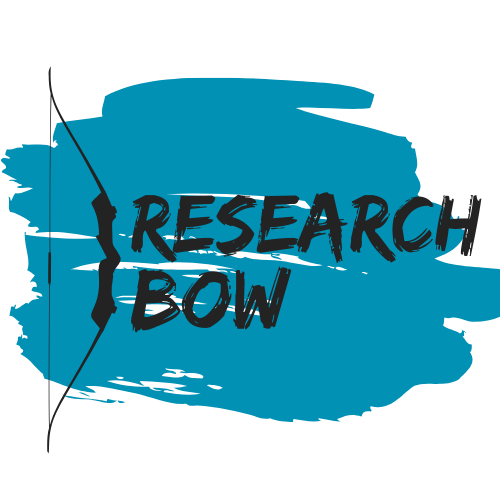As a PhD student, you will most probably get the opportunity to tutor undergraduate and/or postgraduate taught students. In addition to providing a (much welcome!) venue for income, tutoring experience advances academic career prospects, as it is an essential prerequisite for academic posts that involve teaching duties, such as teaching fellowships and lectureships. Moreover, tutoring is considered to help develop transferable skills high in demand in academia and beyond, including interpersonal and communication skills, problem solving, group facilitation and teamwork. It should come as no surprise, then, that the first time I was asked to tutor I grabbed the opportunity with both hands, and I have since consistently applied for tutoring posts advertised within the School of Health in Social Science (SHSS).
Of course, beyond the financial and professional prospects it offers, tutoring is very rewarding in itself. It is an activity that is intellectually stimulating for both students and tutors alike. Personally, I was also glad to find myself enjoying teaching, especially when I felt I could support students by sharing my insights and perspective on the learning material, gained through my own research and professional experience on the topics covered. I must admit, nonetheless, that I also experienced challenges while transitioning into this new role.
The preferred mode of tutoring within our School and the University of Edinburgh overall is the flipped classroom approach. This model requires students to have done preparatory work at home, and then apply what they have learned by participating in group tasks during the tutorial. The tutor provides students with formative feedback during these tasks and open discussions. It is evident that this constitutes a highly active and interactive approach to learning, and tutors need to possess the appropriate tools to facilitate this process. As I do not have a background in Education Sciences, and I had never attended flipped classroom tutorials as an undergraduate and master’s student, I did not feel very confident I possess the skillset required for my new role as a tutor.
Introduction to academic practice

Luckily, the University of Edinburgh offers excellent courses and resources on tutoring, which are developed and delivered by the Institute for Academic Development (IAD) (links to these resources can be found at the end of this post). Among the many IAD courses available for University of Edinburgh tutors to attend, the one I found most useful was the Introduction to Academic Practice (IntroAP) course, which upon successful completion offers Associate Fellowship with the Higher Education Academy (HEA). It consists of three seminars delivered over a period of 2 to 3 months, and involves (much in the style of flipped classroom tutorials!) preparatory reading, contributions to online discussion forums, submission of short written tasks, and participation in group tasks during attendance. The two central features of the course are a teaching observation exchange task and a final reflective assignment on how your tutoring practice reflects professional standards in Higher Education, as defined by the UK Professional Standards Framework (UKPSF).
What I most enjoyed in this course was that all tasks required me to consider, discuss, and report how my tutoring practice maps onto concepts introduced through key literature on educational practice. I found that all these tasks helped me consistently exercise reflective skills about my practice utilizing resources beyond my personal experience, such as colleagues’ perspectives and, a resource I was not used to accessing but found very insightful, educational theory. Had it not been for the focus of the course on educational theory, I would not have become aware of my own implicit views on the role of teachers and students in the learning process, nor would I have been able to articulate this growing awareness in a manner that has since afforded me the confidence to shape my teaching practice and my developing identity as a tutor.
The teaching observation exchange exercise, which required me to observe IntroAP peers during tutorial time and provide feedback on their practice, and be observed and receive feedback from my peers in return, was also very useful in helping me consider advantages and disadvantages of tutoring approaches different to my own. This experience also encouraged me to become more interactive with students by experimenting with different strategies to engage them in the classroom, without fearing, as I usually did, that my behaviour will be experienced as intrusive or disruptive.
A happy ending!

Overall, I am glad to say that my evolution as a tutor following the IntroAP course was very evident to me from the increasing satisfaction I drew from tutoring, and the increasing satisfaction of my students compared to previous years, as communicated through anonymous feedback. This is why I highly recommend the course to anyone who is interested in developing or improving their teaching skills in Higher Education.
At this point, I have to say that there are some limitations to applying for this course, as final year PhD students are prioritized over first-year or second-year PhD students, and those applying are required to have at least two semesters of recent tutoring experience by the time IntroAP begins. Therefore, those who have just started tutoring or those who are not in the final year of their PhD studies will be entered in a waiting list until they meet course prerequisites. However, there is still some flexibility, as the course is delivered once per semester, which practically means that one might meet the criteria to enrol during the second semester of the academic year. If this is still not an option, one might want to consider professional accreditation with the HEA through the Edinburgh Teaching Award route (EdTA), which provides training to tutors and demonstrators through a mentorship scheme.
More information on the different IAD courses that focus on teaching skills development, and provide routes for professional accreditation with the Higher Education Academy (HEA) can be found on the following links:
- https://www.ed.ac.uk/institute-academic-development/learning-teaching/staff/tutors-demonstrators/accreditation
- https://www.ed.ac.uk/institute-academic-development/learning-teaching/cpd
Information on IAD courses and resources available to tutors and demonstrators can be found on the following links:
- https://www.ed.ac.uk/institute-academic-development/learning-teaching/staff/tutors-demonstrators/courses
- https://www.ed.ac.uk/institute-academic-development/learning-teaching/staff/tutors-demonstrators/courses




